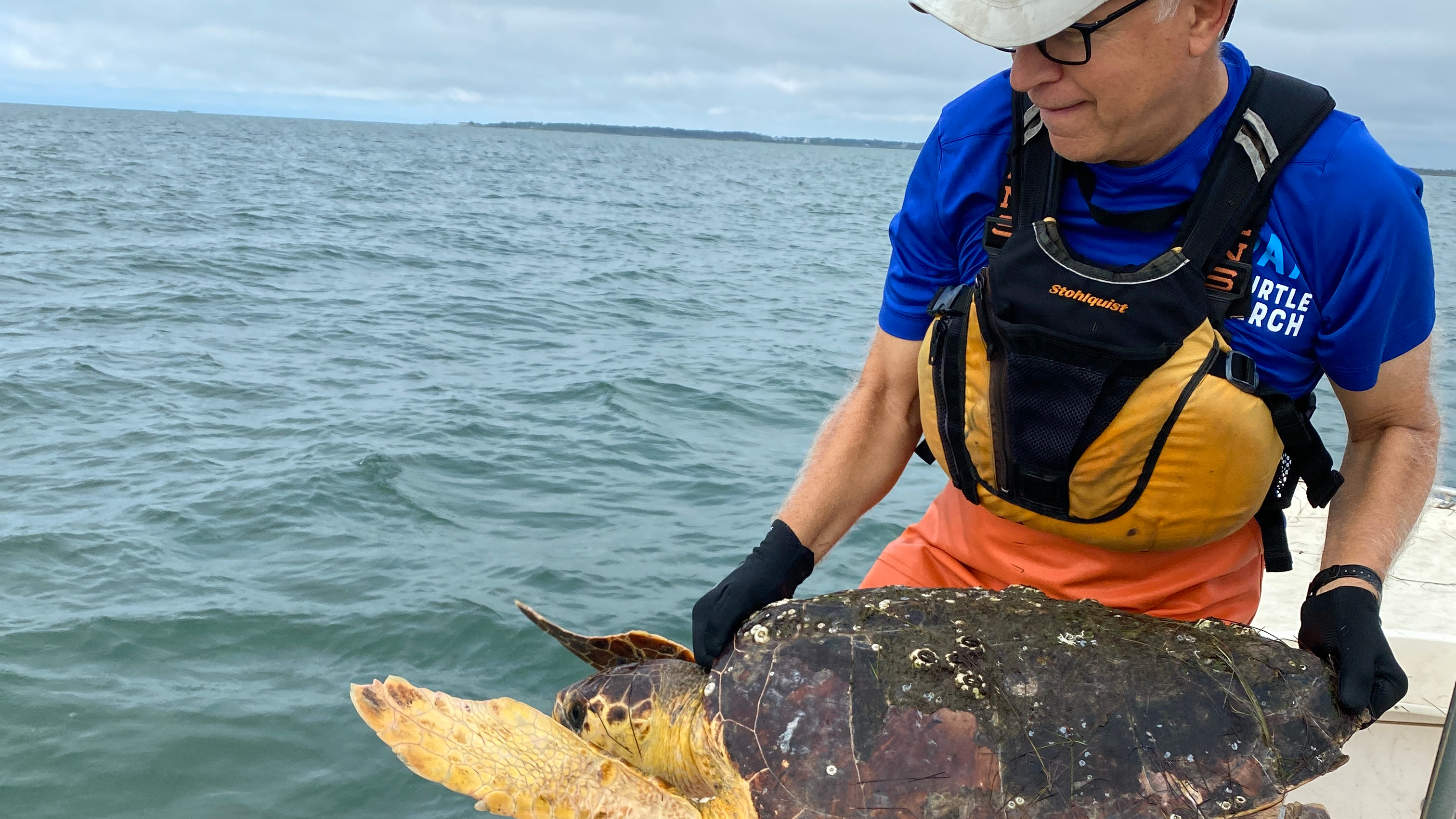CMAST Collaborates on Summer-long Sea turtle Study

The Marine Health Program at the NC State Center for Marine Sciences and Technology (CMAST) is wrapping up a month-and-a-half long set of sea turtle studies in collaboration with NOAA, Duke University Marine Laboratory, and Arizona State University. Sea turtles are being collected in research pound nets, which are stationary fish traps that sea turtles can also enter, swim around inside, freely surface to breathe, and feed. Some individual turtles do so repeatedly.
The first study is testing bycatch reduction methods (ASU, NOAA) to minimize unwanted catch (sea turtles) without harming catch of target species (e.g., flounder). A second study employs the sea turtles that are caught despite the bycatch reduction method, or in control pound nets, for hearing studies, using a technique called Auditory Evoked Potential (AEP) testing. AEP testing can determine what a turtle’s hearing sensitivity is at various frequencies (NCSU, Duke, NOAA). This study is filling data gaps for different sea turtle species and size classes to help management agencies lessen adverse effects of ocean noise (e.g., seismic testing, pile driving, active sonar) on protected marine species. The third study is validating non-invasive blood tests for determining the sex of juvenile sea turtles, using laparoscopy as the gold standard to judge the blood tests.
Juvenile sea turtles have no external features to determine their sex, and they have no sex chromosomes (sex being determined by egg incubation temperature), so DNA sexing cannot work. Direct observation of the internal gonads via laparoscopy does work. The laparoscopies are performed at CMAST by our in-house veterinarians. Knowing the sex of sea turtles at different size classes before they mature at twenty-to-thirty years old is important for modeling population trends, including in response to ocean and beach warming, considering their temperature-dependent sex determination. Establishing the reliability of an accessible non-invasive diagnostic blood test will facilitate easier testing of larger numbers of sea turtles with a minimum of inconvenience to the turtles.


